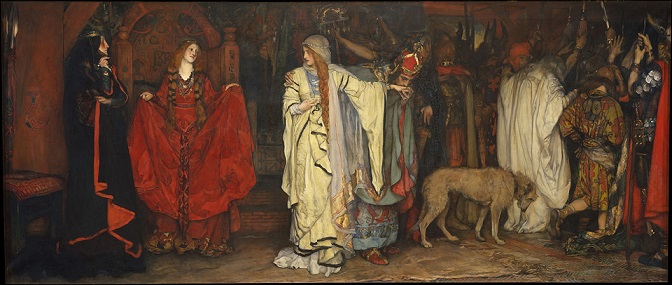by Aaron Ratliff
William Shakespeare, the “Bard of Avon”, “He Who Must Be Mimicked Eternally For Success”, has made quite a name for himself. After at least 37 highly quotable plays and over four centuries of some of the most vehement hate that high schoolers can muster, there has to be something that keeps this guy hanging around.
Sure, his ability to expose some of both the lightest and darkest parts of human nature while simultaneously enthralling his readers with scenes for the ages has something to do with it. He learned early on that there was a trifecta of attention grabbers to rivet your audience: magic, sex, or violence; in some cases, more than one at a time.

The beginnings were always so great when I remember reading these plays in high school. The middles (typically the third act, you Shakespeare lovers know what I mean) were equally great and filled with as much adrenaline pumping as that ye old English would allow for. I forgot about The Bard as most students tend to do once that unit is done with; but then came college.
When I began college, I wrote a paper comparing and contrasting the play King Lear and the novel Fool (by the most auspicious author Christopher Moore). The paper did fairly well as I remember, but I made a point in it that I think deserves another pass over.
Shakespeare does the exact opposite of a premature climax in King Lear. He waits until the almost literal last moment to have the story peak. Don’t get me wrong, I like suspense just as much as the next person, but this time it left me with a feeling of ‘wait, wait, wait… can we do that again?’. Don’t mistake me, (spoilers ahead) the death of an entire family and armies marching against each other and all that incredibly nightmarish reality (they brought on themselves of course) just always felt rushed to me. Unless you are really paying attention or have an exceptional teacher behind you, prodding you along in the right direction, you’re so caught up in all the death that the themes and larger messages at hand go unnoticed. Within the span of three or four pages everyone dies… well not everyone but pretty much everyone. THAT impact is felt, and it’s a big impact but the little subtleties that make The Bard worth reading for 400 years are more important.
So come on William, give us at least one or two pages between killing off half the actors in the play. We’d like to be able to absorb those universal themes we know are hiding underneath somewhere.
About the Author
During his time before launching his college career and even now, Aaron has exhibited a strong proclivity for the art of writing. An avid reader all his life, his works are influenced through the likes of authorial greats like Stephen King, Christopher Moore, and Orson Scott Card. He is of the opinion that one is essential for the other. Aaron has mostly worked on creative short fiction and research papers but is now making a very exciting transition into the blogging aspects of his craft


